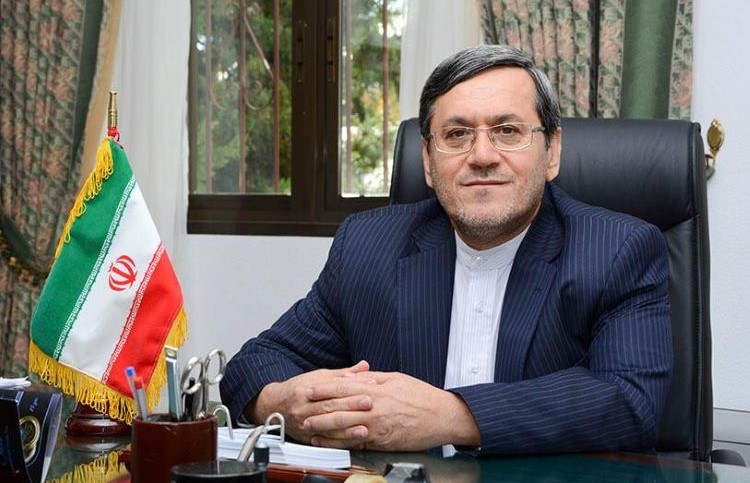Eduardo González
The President of the Government, Pedro Sánchez, yesterday condemned the death of Mahsa Amini and the repression of the demonstrations in Iran, while the Ministry of Foreign Affairs summoned the Iranian ambassador in Madrid, Hassan Ghashghavi, to convey its protest for the same reason, a day after the Executive officially pronounced itself on these events with more than ten days of delay.
During a message by videoconference during the presentation of the Santiago Ramón y Cajal Year of Research, Sánchez expressed the “condemnation of the Spanish society as a whole and also of the Government of Spain for the situation of women in Iran and for the death of Mahsa Amini, a condemnation that we have conveyed to the Iranian Government and that includes the rejection of violence against peaceful demonstrators and our defense of freedom of expression and the right to demonstrate”.
On the other hand, the Ministry of Foreign Affairs summoned yesterday the Iranian ambassador in Madrid, Hassan Ghashghavi, to the headquarters of Marqués de Salamanca to convey its protest against the repression of demonstrations and the violation of women’s rights, as confirmed by Foreign Affairs sources to The Diplomat. The German government summoned the Iranian ambassador to Berlin two days earlier, last Monday. Meanwhile, a hundred demonstrators, mostly women, gathered yesterday in front of the Iranian Embassy in Madrid to protest against the repression and to ask the ambassador to convey their demands for freedom to the government.
Both Sánchez’s statement and the ambassador’s call came hours after the Foreign Ministry issued a statement at eleven o’clock on Tuesday night in which it expressed its “firm condemnation” of “the violence against peaceful demonstrators” in Iran and demanded that the Iranian authorities “fully respect and guarantee the right of all its citizens to express themselves and demonstrate freely and peacefully”, that “an independent investigation” of these events be carried out and that “responsibilities be determined in a transparent, objective and complete manner”.
“I can’t comment on it”
Mahsa Amini, a 22-year-old Kurdish woman, died last September 16 of cardiac arrest in a Tehran hospital where she had been admitted in a coma after being arrested by the so-called Morality Police for not wearing the veil properly. Following her death, protests were triggered in several cities in the country, including Tehran, which were harshly repressed by the authorities, with a death toll of several dozen people (50, according to the authorities; 76, according to an Iranian human rights organization in exile). The United Nations has confirmed the use of firearms in the demonstrations by the security forces and Amnesty International has demanded that the UN General Assembly create an international mechanism for investigation and accountability.
Six days after the events, when they had already been widely disseminated through social networks and three days after being expressly condemned by the EU High Representative for Foreign Policy, Josep Borrell, Pedro Sánchez preferred not to pronounce himself on these incidents during the press conference offered on September 22 in New York. “I saw that it was on social networks, but I can’t comment on it,” he declared.
The Foreign Ministry did not take a position until last Sunday, September 25, in a tweet in which it called for an end to the “disproportionate use of force against demonstrations in Iran following the death of Mahsa Amini”, whose “death must be clarified and those responsible must answer for it”. This message was published on the occasion of the statement issued the same day by Josep Borrell, on behalf of the entire EU, in which he urged the Iranian authorities, among other demands, to “strictly respect the principles enshrined in the International Covenant on Civil and Political Rights, to which Iran is a party”, to “immediately put an end to the violent repression of protests” and to “duly” investigate the murder of Mahsa Amini, including the accountability of those responsible. This past Monday, the Minister of Foreign Affairs, José Manuel Albares, repeated these same arguments during a Europa Press breakfast briefing.
Meanwhile, the PP spokeswoman, Cuca Gamarra, has begun to promote among all parliamentary groups an institutional declaration in support of Iranian women and their right “not to wear veils, jihad, burkas or any other garment that involves a restriction on individual freedom.” The text also condemns the violation of the rights of women and girls by the Iranian regime, condemns the murders of Masha Amini and the repression of the protests, and calls for the release of all those arrested. The intention of the main opposition party is that this declaration be approved during this week’s plenary session of the Congress, and everything indicates that it will have the support of all parliamentary groups.







